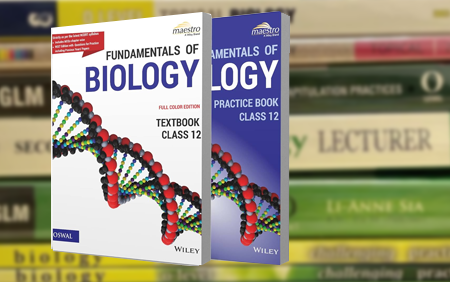Bachelor of Education (B.Ed) in Biological Science
A Bachelor of Education (B.Ed) in Biological Science is a specialized degree program designed for individuals who aspire to become educators in the field of biological sciences. This program focuses on providing a comprehensive understanding of educational theories, teaching methodologies, and the content knowledge specific to biological sciences. Below are the typical course details and potential career opportunities associated with a B.Ed in Biological Science.
BEd Biological Science Course Details:
Duration
-
The duration of a BEd program is typically 2 years.
Eligibility Criteria
-
Candidates should have completed a bachelor's degree in biological sciences or a related field with a minimum specified percentage. Some institutions may conduct entrance exams or interviews as part of the admission process.
Curriculum
-
Foundations of Education
-
Educational Psychology
-
Teaching Methodologies in Biological Science
-
Curriculum Design and Development
-
Language Acquisition and Development
-
Biology Education
-
Ecology and Environmental Education
-
Educational Technology
-
Assessment and Evaluation
-
Classroom Management
-
Internship or Teaching Practice
Specializations
-
Some programs may offer specializations within the B.Ed in Biological Science, such as Environmental Education or Biology Education Research.
Practical Training
-
BEd programs typically include a mandatory teaching practice or internship component, where students gain hands-on experience in a classroom setting.
Career Opportunities
School Teacher
-
B.Ed graduates in Biological Science can work as school teachers in primary, secondary, or higher secondary levels, teaching various aspects of biological science.
Biological Science Educator
-
Opportunities exist in educational institutions, colleges, and coaching centers to work as educators specializing in biological sciences.
Educational Researcher
-
Graduates can focus on environmental education, teaching students about ecology, conservation, and sustainable practices.
Curriculum Developer
-
Opportunities exist in developing biology curriculum for schools, educational publishing houses, and e-learning platforms.
Science Coordinator
-
Some graduates may choose to work as science coordinators, overseeing the development and implementation of science curricula in educational institutions.
Textbook Author
-
B.Ed graduates in Biological Science can contribute to the creation of biology textbooks for various educational levels.
Museum Educator
-
Opportunities exist to work in museums, nature centers, or science centers as educators, providing interactive learning experiences in biological science. Before pursuing a B.Ed in Biological Science, it's advisable to research specific program offerings, accreditation, and career prospects in your region. Gaining practical experience through internships or volunteer opportunities can enhance your teaching skills and make you more competitive in the job market. Additionally, staying updated on advancements in biological science and incorporating technology into teaching practices can be beneficial for a successful

